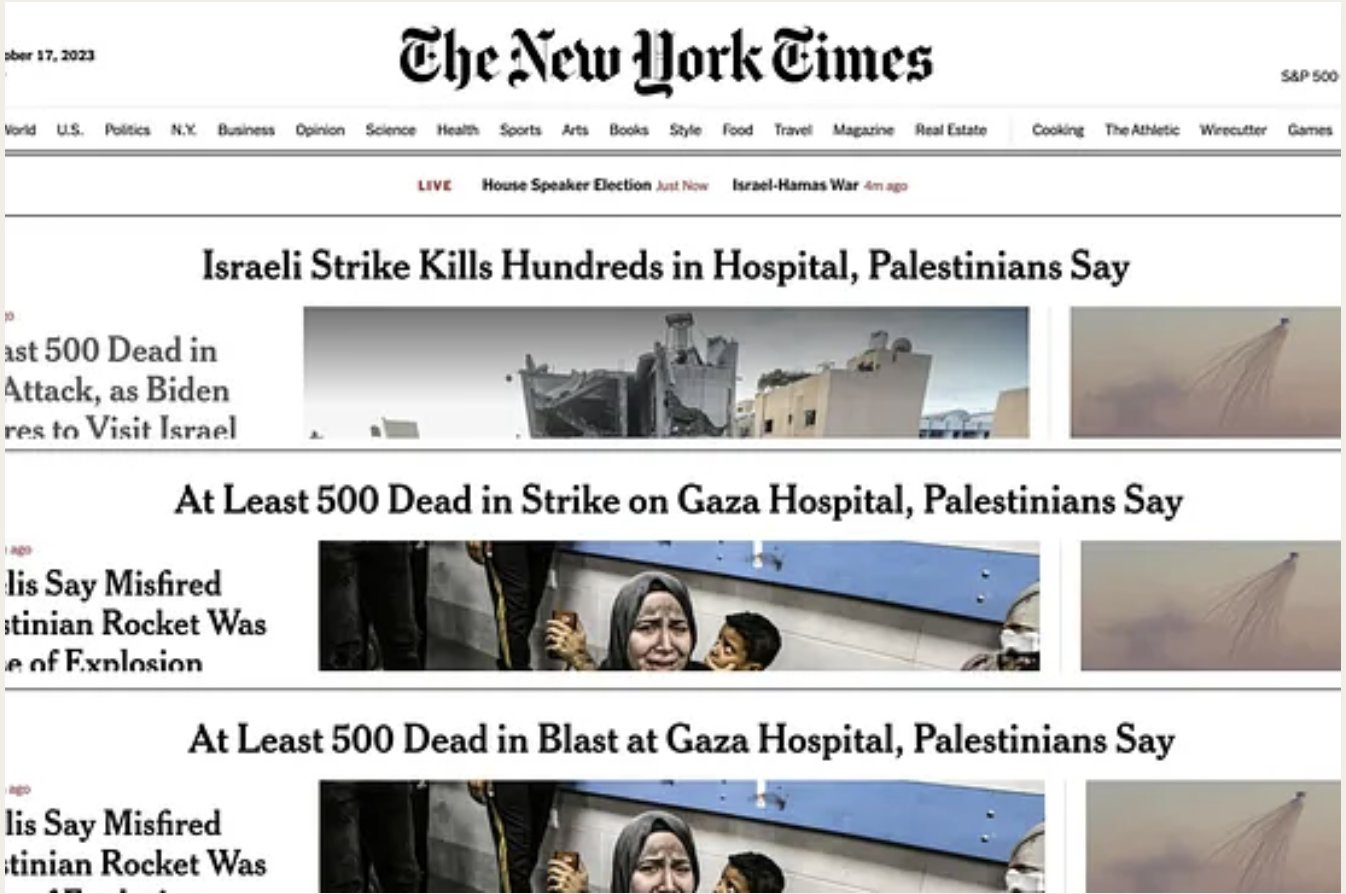Why I keep turning down The New York Times
Reasons for writing independently

The New York Times has been in the news a lot; in fact, lately, it’s been the news. Mostly due to cover of the current war. First, there was the issue around their changing headline following an explosion at a Gazan hospital after an initial assumption it was for sure Israel:
Then, more recently, the question was floated whether or not the photojournalists at the October 7th massacre, some of whom had freelanced for organizations like CNN or The New York Times, and who captured some of the widely-used images of hostages being taken, etc, were acting unethically, or even in a participatory way given their closeness to the violence—an accusation The New York Times strongly denies.
Due to these stories I’ve been thinking about The New York Times as an institution. Perhaps because, after publishing here, I’ll now sometimes get an email that goes (paraphrasing here): “This piece you wrote was great, but why isn’t it in The New York Times, etc?”
Depending on how this is phrased, it can either be an incredibly kind compliment, or it can be a kind of “Man, what are you doing here?” question that reminds me of a Billy Joel lament.
What I always want to reply to such questions is that, while outlets like The New York Times are considered traditionally prestigious places, there are misconceptions about the benefits of publishing with them. Personally, I’ve been reached out to and asked to write for The New York Times three or four times now. And I’ve always turned them down.
Why? You might think it’s the politics or principles of the organizations, exactly the kind of thing people have been criticizing lately. And it’s true there are some lines I won’t cross. Although these are more about formal policies unfair or damaging to writing as a whole. E.g., I’ve called out places like The Guardian for not including links to any sources in its articles, and putting no meaningful restrictions on their use of AI writing. (A lot of what you read there is ChatGPT word sludge, by the way. Just go check out their Sports section to see it.)
So I wouldn’t write for The Guardian, purely on principle. As for the “political stuff,” I do think places like the Times bear a pretty big responsibility for the increasing polarization of my generation, especially starting around 2012. And I don’t love seeing their thumb on the scales when it’s exposed. At best it strikes me as tawdry. However, the Times is also a massive organization with a bunch of moving parts, publishing over 200 pieces a day, and the vast majority of that content is pretty truthful and timely and non-tawdry.
So while it’d be easy to portray my actions as some sort of principled purely political stand, it’s not really that. It does have something to do with independence vs. institutionalization—Cormac McCarthy hid out at the Sante Fe Institute for most of his later life for such reasons.
Unlike McCarthy’s, I know no one cares about my little private protest. Especially the Times. I am one lone figure turned away in a crowd clamoring to get in. Yet, even from a purely practical perspective, most of those clamoring don’t know the three main considerations that make the whole thing less attractive.
These organizations don’t pay (very) well for your writing.
It often doesn’t drive readers to your other work.
The impact/traffic of your piece will be less than you think.
This is all hidden by how publishing in a place like the Times is considered—no, it frankly is—incredibly prestigious. People do it just so they can put it in their bios, or finally get their friends and family to take them seriously. The prestige is so great it’s hard to for others outside the very small “makes a living by writing” crew to imagine that those with bylines in the Times, those who have so much cultural power, are not really reaping significant personal benefits outside of sporting a pretty halo of prestige. In fact, if you were a freelancer who relied on publications like the Times, you’d be at risk of being flat broke.
Here’s how much The New York Times will pay you for an article (quoted from my own offers):



